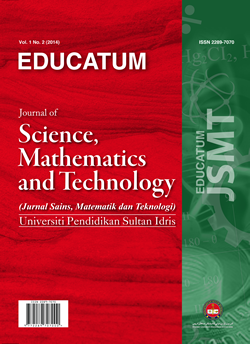Recyclable Waste Collection Routing in Households’ Areas Using the Mtz-Tsp Model – A Case Study in Rasah, Negeri Sembilan
DOI:
https://doi.org/10.37134/ejsmt.vol11.1.2.2024Keywords:
vehicle routing, collection, waste, recycling, travelling salesman problemAbstract
Sustainable household waste management is crucial for any nation. Currently, Malaysia relies heavily on landfilling as a waste disposal method. Unfortunately, most of the waste disposed of is recyclable. One of the contributing factors to householders' unwillingness to recycle is inadequate collection systems. The implementation of an efficient system for collecting recyclable waste would contribute to the improvement of Malaysia's waste management infrastructure, particularly regarding the restricted availability of suitable landfill space in the future. Therefore, this study employed the Miller-Tucker-Zimmer Travelling Salesmen Problem (MTZ-TSP) as a framework to address the issue of collection routing for recyclable material within household areas. For our research study, we have selected twelve households in Rasah, a suburban neighborhood located in Negeri Sembilan, as the empirical preliminary work. It took less than 150 minutes to collect the recyclables from these twelve households.
Downloads
References
Juliana, N., Lada, S., Chekima, B., and Abdul Adis, A.-A. (2022) ‘Exploring Determinants Shaping Recycling Behavior Using an Extended Theory of Planned Behavior Model: An Empirical Study of Households in Sabah, Malaysia’, Sustainability, 14(8), p. 4628. doi: 10.3390/su14084628.
Yu, P. L., Ab Ghafar, N., Adam, M., and Goh, H. C. (2022) ‘Understanding the Human Dimensions of Recycling and Source Separation Practices at the Household Level: An Evidence in Perak, Malaysia’, Sustainability, 14(13), p. 8023. doi: 10.3390/su14138023.
Shuib, A., Hadianti, R. and Zahari, M. R. (2023) ‘Towards Sustainable City : A Covering Model for Recycling Facility Location-allocation in Nilai, Malaysia’, Science and Technology Indonesia, 8(4), pp. 570–578.
Chin, M. Y., Lee, C. T., Klemeš, J. J., Van Fan, Y. and Woon, K. S.(2023) ‘Developing a sustainability solid waste treatment portfolio for 3Ps (planet-prosperity-people) nexus’, Journal of Cleaner Production, p. 137698. doi: https://doi.org/10.1016/j.jclepro.2023.137698.
UNEP (2021) 3R (Reduce, Reuse, Recycle) Initiatives: Solving Plastic Pollution at Source. Petaling Jaya. Available at: https://wedocs.unep.org/20.500.11822/40346.
Azri, S., Ujang, U. and Abdullah, N. S. (2023) ‘Within cluster pattern identification: A new approach for optimizing recycle point distribution to support policy implementation on waste management in Malaysia’, Waste Management & Research: The Journal for a Sustainable Circular Economy, 41(3), pp. 687–700. doi: 10.1177/0734242X221123489.
Baba-Nalikant, M., Syed-Mohamad, S. M., Husin, M. H., Abdullah, N. A., Mohamad Saleh, M. S., and Abdul Rahim, A. (2023) ‘A Zero-Waste Campus Framework: Perceptions and Practices of University Campus Community in Malaysia’, Recycling, 8(1). doi: 10.3390/recycling8010021.
Malakahmad, A. and Noor Diana Khalil (2011) ‘Solid waste collection system in Ipoh city’, in 2011 International Conference on Business, Engineering and Industrial Applications. IEEE, pp. 174–179. doi: 10.1109/ICBEIA.2011.5994236.
Tirkolaee, E. B., Abbasian, P., Soltani, M. and Ghaffarian, S. A. (2019) ‘Developing an applied algorithm for multi-trip vehicle routing problem with time windows in urban waste collection: A case study’, Waste Management & Research: The Journal for a Sustainable Circular Economy, 37(1_suppl), pp. 4–13. doi: 10.1177/0734242X18807001.
Bazrafshan, R., Hashemkhani Zolfani, S. H. and Al-e-hashem, S. M. J. M. (2021) ‘Comparison of the Sub-Tour Elimination Methods for the Asymmetric Traveling Salesman Problem Applying the SECA Method’, Axioms, 10(1), p. 19. doi: 10.3390/axioms10010019.
Miller, C. E., Tucker, A. W. and Zemlin, R. A. (1960) ‘Integer Programming Formulation of Traveling Salesman Problems’, Journal of the ACM (JACM), 7(4), pp. 326–329. doi: https://doi.org/10.1145/321043.321046.
Downloads
Published
Issue
Section
License
Copyright (c) 2024 Zati Aqmar Zaharudin, Adibah Shuib, Zahari Md Rodzi, Noraimi Azlin Mohd Nordin

This work is licensed under a Creative Commons Attribution-NonCommercial-ShareAlike 4.0 International License.





